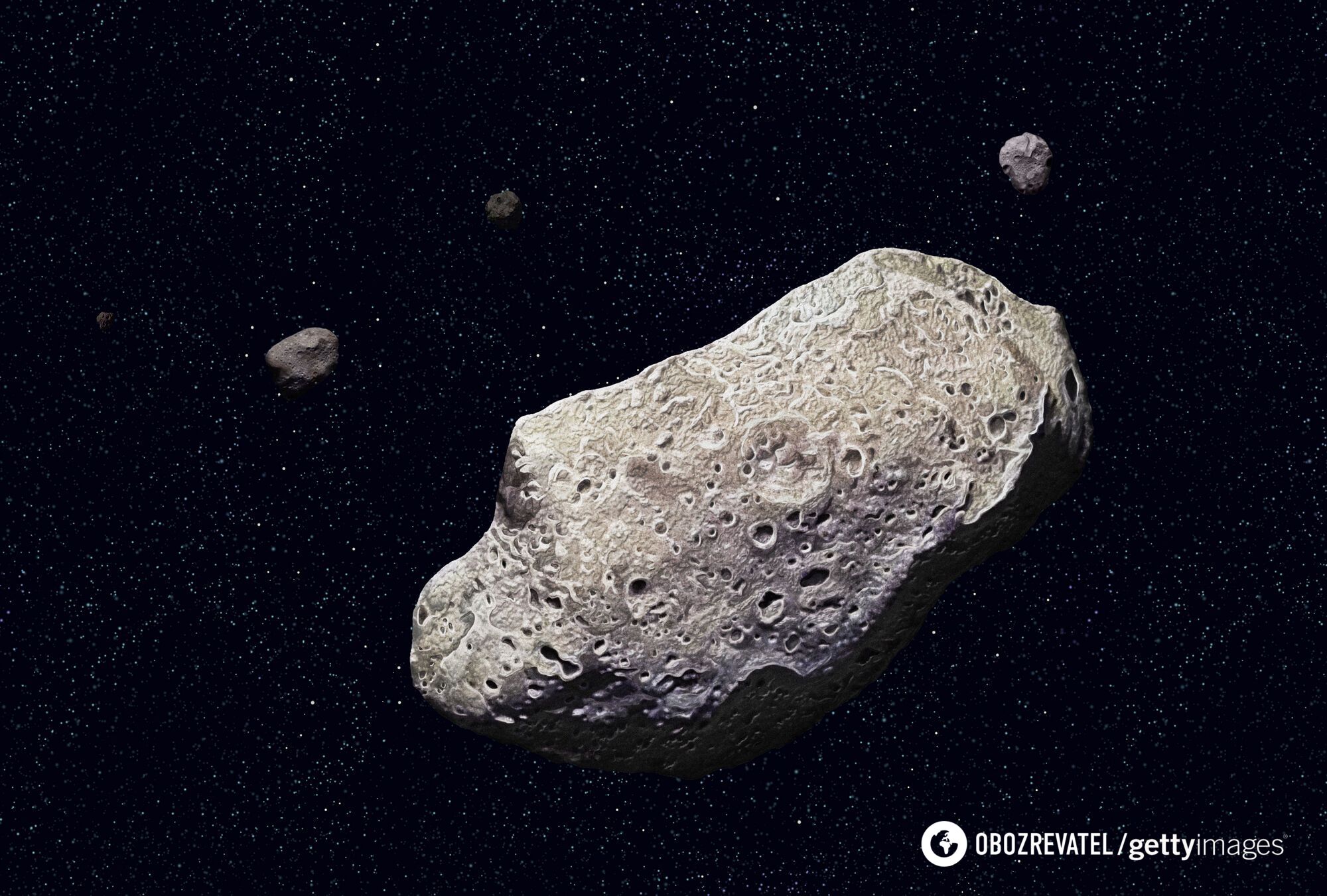News
Earth's collision with the "God of Chaos" in 2029 may cause "asteroidal tremors": scientists warn of danger
When the "God of Chaos" asteroid Apophis flies by Earth at a very close distance in 2029, our planet's gravity may trigger "asteroidal tremors" (shocks and shifts). Scientists say this will change the surface of the space rock.
Thanks to a new study, scientists are trying to predict what this fateful asteroid approach will look like. Scientists assure that this meeting will not have any negative consequences for the Earth, LiveScience writes.
Apophis was named after the Egyptian god of destruction and chaos. After all, when it was first discovered, scientists assumed that there was a significant chance that it would hit the Earth in the next century.
This asteroid is 340 meters long. If it collided with Earth, Apophis would not cause a mass extinction of living beings on our planet, researchers say. However, it could drastically reduce food production for long enough for most people in the world to die of starvation, IflScience writes.
More detailed observations in 2021 allowed scientists to determine Apophis' path with greater accuracy. On April 13, 2029, this asteroid is expected to come within 32,000 kilometers of Earth, which is closer than some artificial satellites.
Given this distance, Apophis is not likely to impact the Earth, but it will undergo deformation, experts say.
"Tiny meteorites constantly bombard the surfaces of asteroids in a process called cosmic weathering," said Ronald-Louis Ballouza, an asteroid researcher at the Johns Hopkins University Applied Physics Laboratory.
However, the scientist added that astronomers have long noticed that asteroids flying near planets such as Earth often do not have weathered surfaces.
The exact physical mechanism that eliminates evidence of weathering is not well known to scientists. One possibility is that the planet's gravity pulls rocks on the asteroid's surface, tossing them away and exposing the underlying layer.
To test this hypothesis, Ballouz and a team of international researchers created computational models of Apophis. The scientists simulated the movement of each model toward Earth, tracking both large and small physical changes.
The researchers found that two physical processes caused by the Earth's gravitational forces are likely to deform Apophis' surface during its impact in 2029. One of these processes is aftershocks, which are likely to begin an hour before Apophis reaches its closest point to the planet and continue for some time afterward.
The strength of the tremors is difficult to estimate, Ballouz said. However, Apophis' gravity is about 250,000 times less than Earth's.
This means that earthquakes could be intense enough to lift boulders from the surface of Apophis. While some rocks may escape, most will fall back onto the asteroid, forming distinct patterns on the surface, the researchers suggest.
Another process that could change Apophis' surface is a change in its movement. According to the scientists, this happens because the asteroid does not rotate around a fixed axis or time period, but rather tosses through space like a badly thrown ball.
A 2023 study showed that the Earth's gravity would cause the asteroid to spin either faster or slower depending on its orientation as it approaches in 2029. The new modeling confirmed this conclusion.
Scientists also found that changes in Apophis' fall will destabilize sloping rock surfaces, potentially causing landslides in extreme cases. Unlike seismic tremors, these changes will occur gradually, over tens of thousands of years.
Ballouz and his colleagues hope that NASA's OSIRIS-APEX mission will confirm their hypotheses. The spacecraft that collected the samples from the asteroid Bennu plans to study Apophis during its encounter in 2029. The device will meet with the asteroid for 18 months to study its chemical composition and map its surface.
Only verified information is available on the OBOZ.UA Telegram channel and Viber. Do not fall for fakes!




























